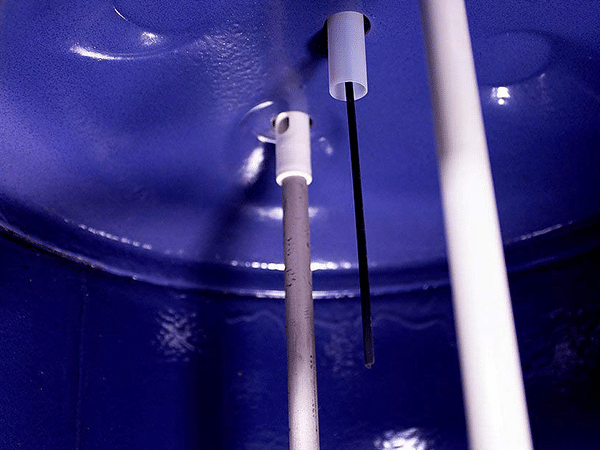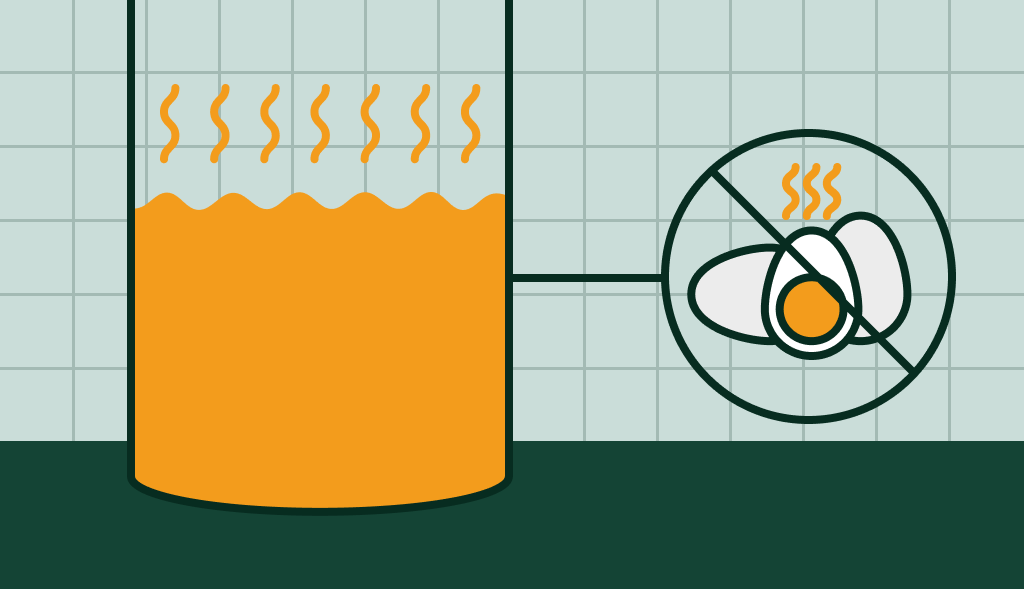Water Heater Anode Rod – Extending Your Water Heater Life!

When you think about household maintenance, checking and replacing a water heater anode rod might not be the first thing that comes to mind. However, the humble anode rod plays an instrumental role in maintaining the health of your water heater tank.
Even if you are buying the best water heater on the market, a lack of maintenance will make it last only couple years and you’ll finish having a water heater leaking because of the corrosion. Let’s dive into understanding the importance of the hot water heater anode rod and how it works to protect your tank from corrosion, extending the life of your tank.
The Function of an Anode Rod for Water Heater
At the core of every water heater is a sacrificial anode rod. This metal rod, made from either aluminum or magnesium, is designed to protect the tank from the harmful effects of corrosion and rusting. The term ‘sacrificial’ means the rod willingly degrades or ‘sacrifices’ itself to prevent the tank from corroding.
When a magnesium anode rod or an aluminum anode rod is placed in a steel water heater tank, it leverages a scientific principle called galvanic corrosion. Essentially, the anode rod willingly corrodes first, sparing the tank from rust. The anode rod’s sacrificial action safeguards the integrity of the water heater tank, contributing significantly to the lifespan of the water heater and the quality of your hot water supply.
Stop Reading, Start Saving: Boost Your Water Heater’s Lifetime Instantly!
Prolonging your water heater’s life can be simple with proper maintenance, a task easier than you may think! Opt for a powered anode rod – it not only halts corrosion but also eliminates that pesky rotten egg smell in your hot water. Plus, with the anode’s impressive durability, sediment concerns during draining become a thing of the past. Amplify your heater’s lifespan and lessen your workload with one simple purchase.
Exploring the Different Types of Anode Rods
Anode rods, often referred to as sacrificial or powered anode rods, play a crucial role in the functioning and longevity of your water heater. These rods provide the necessary protection to the steel body of the water heater tank, warding off corrosion and rust. In essence, they ‘sacrifice’ themselves to protect the tank, hence the term ‘sacrificial anode’.
However, not all anode rods are the same, they come in various types. Each anode type have its own advantages, and your choice should depends on the hardness and composition of your water supply.
Magnesium Anode Rods
These rods are frequently used in water heaters due to their efficiency in protecting tanks from corrosion, particularly in softer water. However, they can cause a rotten-egg smell in hot water and decompose faster than aluminum rods, needing more regular replacements.
Aluminum Anode Rods
More cost-effective and durable than magnesium rods, these are prevalent in various tanks, including RV water heaters. They’re apt for harder water and less likely to cause odors. Their downside lies in the potential formation of aluminum oxide, which can cause maintenance problems by clogging water lines and creating low hot water pressure.
Aluminum Zinc Alloy Rods
These combine the longevity and cost-effectiveness of aluminum with the odor-combatting properties of zinc, making them an excellent solution for a range of water conditions.
Choosing between these anode rods should be based on your water conditions and needs, with each offering different benefits that can contribute to your tank’s efficiency and lifespan.
Powered Anode Rods
A recent addition to the water heater world is the powered anode rod. These rods use an electric current, not sacrificial metal, to protect tanks from corrosion. They induce a low voltage into the water, creating a protective layer inside the tank, preventing rusting and corrosion. This solution offers long-lasting protection, needs less maintenance, and is especially useful in homes using water softeners, which can hasten corrosion.
By installing a Corro-Protec powered anode rod, you won’t have to ever change your rod again, and your tank will last way longer.
Checking and Replacing Your Anode Rod
Regularly inspecting and replacing the anode rod is crucial in preventing corrosion and ensuring the longevity of your water heater tank. To do this, you will need to locate the top of the anode rod, which is usually found at the top of your water heater. Unscrew the top and carefully pull out the rod.
If you find the rod heavily corroded or less than half its original diameter, it is time to replace it. Replacing the anode rod involves removing the old rod and inserting a new one, ensuring it is securely screwed into place. If you’re not comfortable doing this yourself, consider hiring a professional.
This process should be repeated every 3 to 5 years for standard water heaters. However, if you have an RV water heater, the replacement may need to occur more frequently due to its smaller size and increased workload.
Wrapping Up
In conclusion, the anode rod water heater plays an critic role in maintaining your water heater tank’s integrity and ensuring the longevity of your hot water supply. By understanding the importance of this often-overlooked component and implementing regular maintenance practices like checking and replacing the anode rod, you can significantly extend the life of your water heater.
While the task might seem daunting, the benefits of preventing corrosion and rusting far outweigh the efforts required. Whether you own a standard water heater, an RV water heater, or are considering transitioning to a powered anode rod, regular maintenance of the water heater anode can result in efficient performance and extended lifespan of your water heating system. So, roll up your sleeves, inspect and replace that anode rod, and enjoy years of hot water.





Cathodic protection is what you need!
The best way to increase the life of your water heater would be to maintain it properly. When we think of a water heater, we often believe that it is an impossible task to maintain. However, there are several tasks that you can easily do yourself!
We suggest installing a powered anode rod that will stop corrosion and stops rotten egg smell in your hot water.
It will greatly extend the life of the hot water tank and reduce your task as the anode does not deplete so you don’t have to worry about sediments when you drain your heater.
Make YOURS last and BUY NOW!
FAQ
The answer is YES. Since the sacrificial anode must sacrifice itself to protect the hot water tank, it is important that the anode is large enough to last for several years. However, the powered anodes rod do not work in the same way, so they are much smaller.
A powered anode related to electricity being fed into the anode to impose a flow of current rather than relying on natural electrolysis. The length and size of the anode, as well as the current sent by the rectifier will influence the life expectancy of the anode. Corro-Protec anodes have been designed to work for more than 40 years, no matter how hard your water is. In order to know more about the lifetime of the current anodes, I invite you to visit our blog post: Tests of Powered Anode

Yes, glass-lined tanks still need protection because the glass coating can develop cracks or imperfections over time, exposing the metal beneath to corrosion. A powered anode rod like Corro-Protec provides consistent, long-term protection against rust and other water heater problems, ensuring your tank’s longevity and water quality.
The Corro-Protec Powered Anode Rod is designed to fit all tanks on the market, making it a reliable solution for both glass-lined and other types of water heaters.
The anode rod in your Kenmore water heater is located on top of your tank. More precisely, your magnesium or aluminum sacrificial anode is visible through a hexagonal head located in the center of your tank under a plastic cover. Refer to your water heater’s user guide for more information.
The anode rod in your Ruud brand water heater is located on top of your tank.When you are facing the front of your water heater, the sacrificial magnesium or aluminum anode is located on your right under a plastic cover.

The anode rod in your Rheem water heater is located on top of your tank. For most Rheem water heaters, the anode rod is located in a dedicated anode port and can typically be found under a plastic cap and a foam-insulated layer on the top of the tank. It may be necessary to remove this insulation to gain access to the rod.
Here are some standard locations of the water heater anode rod :

UNCERTAIN ABOUT THE LOCATION OF THE EXISTING ANODE ?
Consult your Rheem digital or printed water heater owner’s manual for easy guidance.
Blog
How Long Do Water Heaters Last? Much Shorter Than it Could!
How long do water heaters last is a very complex and difficult question to answer. We live in a society that increasingly understands the environmental […]
Effective Strategies to Remove Sulfur Smell from Your Hot Water Heater
Many homeowners face the unpleasant sulfur smell in hot water. This odor, often resembling rotten eggs, can make using hot water for daily tasks unpleasant. […]

